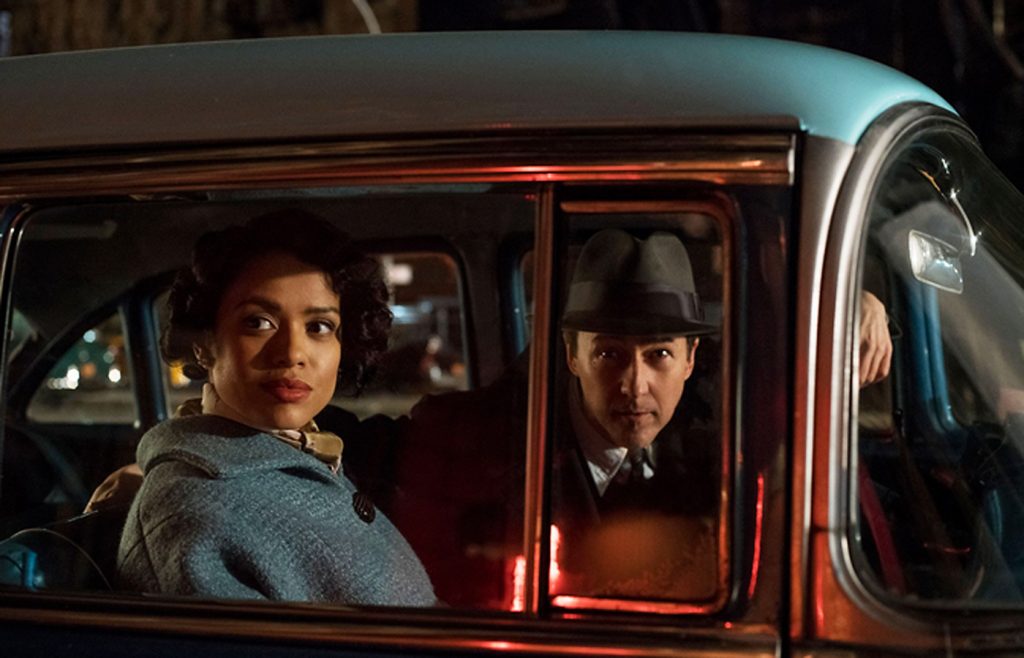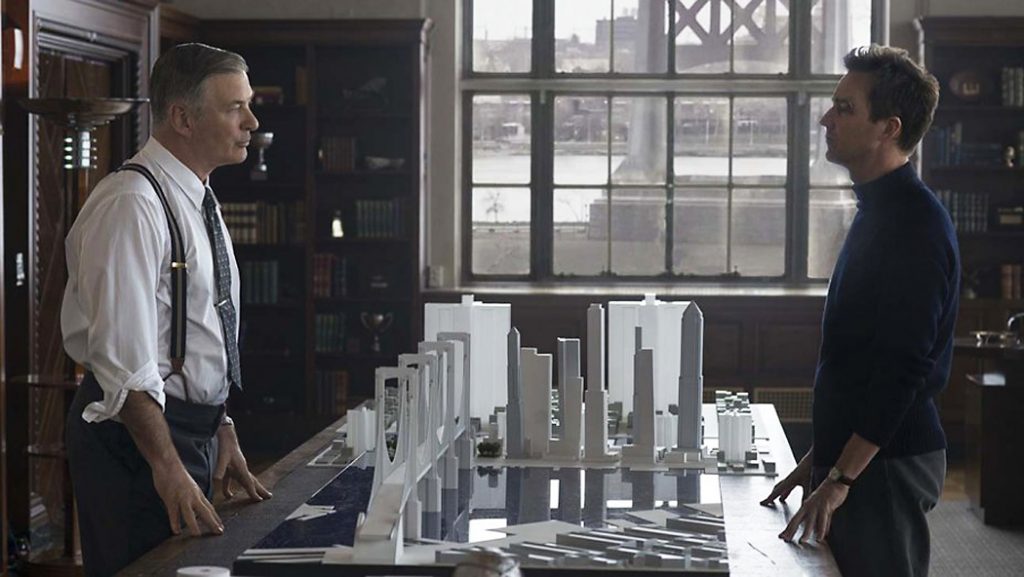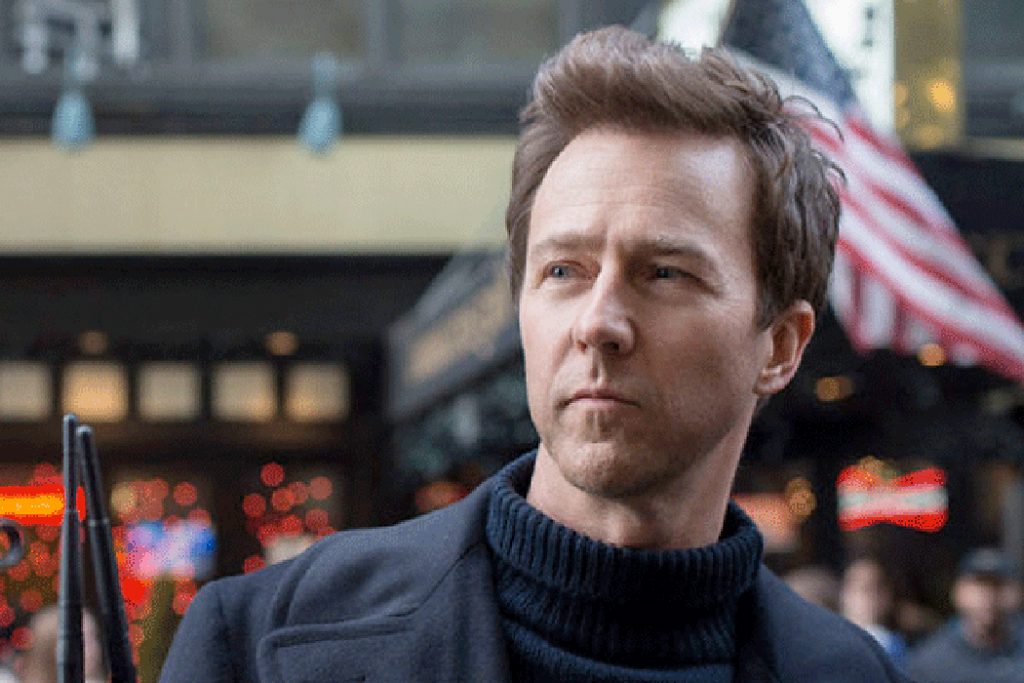
Edward Norton is the writer, director, and star of Motherless Brooklyn, a noir murder-mystery set in 1950s New York. Norton’s character Lionel, who suffers from Tourette’s syndrome, is plagued by involuntary twitching and spontaneous verbal outbursts. Lionel is also obsessive-compulsive, but his gifts include an instinctive intelligence and a photographic memory. The latter talents serve him well as a private detective determined to solve the most important case of his career.
As he doggedly digs for information, he starts to uncover a trail of deception and corruption that becomes increasingly dangerous with every twist and turn. A beautiful African American woman and a shadowy, powerful developer become key figures in Lionel’s lone pursuit of the truth. Co-stars include Bruce Willis, Gugu Mbatha-Raw, Alec Baldwin, Willem Dafoe, and Bobby Cannavale.
Lionel’s boss, mentor, and best friend is Frank Minna (Bruce Willis), who runs a private investigation agency that employs Lionel, Tony (Bobby Cannavale), Gilbert (Ethan Suplee), and Danny (Dallas Roberts). The four men grew up together in a local orphanage with Frank as their leader and protector. When Frank is murdered while working a mysterious case, the group of friends is deeply shaken—Lionel most of all. He sets out to discover who killed Frank and why.

He soon begins to unearth an urban network of political corruption and power. Massive changes are taking place in the city, driven by development and displacement. Fiery outspoken activist Gabby Horowitz (Cherry Jones) and her smart, attractive assistant Laura Rose (Gugu Mbatha-Raw) are trying to stop the powerful developer Mo Randolph (Alec Baldwin) from destroying the neighborhoods of working class, largely non-white residents. Lionel is drawn to Laura, not only because she’s beautiful, but because he senses she has an important connection to what’s behind Frank’s murder. However, Lionel’s obsessive investigation thrusts him and Laura into deadly peril.
This film is atmospheric and gripping, full of 1950s cars, dress, jazz, and New York street scenes, with a through-line that is a mystery crime story progressing towards a solution. Yet the film falls short of greatness, partly due to the obviousness of its clues and predictability of its revelations. There were no surprises for this viewer, and the plot was not always coherent. For example, a jazz trumpet player plays a significant but puzzling role.

However, the acting was excellent all around. Tourette’s-afflicted Lionel, thanks to Norton’s realistic portrayal that includes his vulnerability, humiliation, and loneliness, is an unusual lead character that captures your interest. Mbatha-Raw’s beauty is striking, although her character is not well developed and she’s sort of, but not fully, a romantic foil for Lionel. Baldwin is palpably menacing as a ruthless, ambitious man for whom power must be absolute and decisive action is far more effective and valuable than knowledge or sentimentality. His popular and inspirational status in the eyes of the public belies the class and racial destruction he is engineering through his reconstruction of the city. Mo’s character echoes these divisive political times of populism versus progressiveness. Cannavale’s Tony is a smooth-talking partner and friend whose takeover as the new pragmatic boss of the agency is never questioned by Lionel and the others, but whose noticeable shiftiness doesn’t portent well.
Norton read the book by Jonathan Lethem on which this film is based 20 years ago and started working immediately on a screenplay, which languished for years as he struggled with writer’s block. Norton is an outstanding actor, as he’s proven time and again in many diverse roles, and his Lionel character reflects that excellence. The direction and screenplay, however, are less brilliant.
